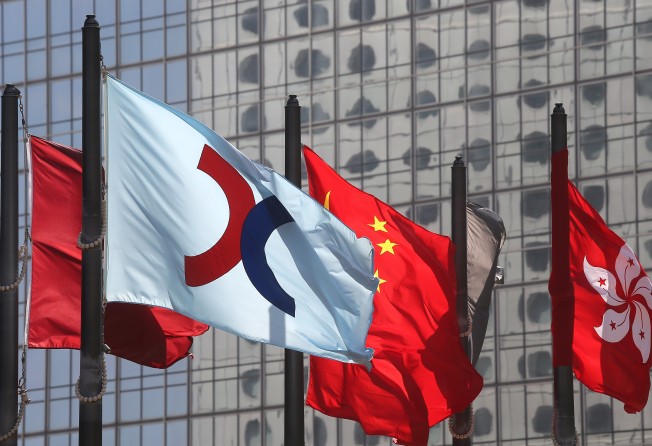Hong Kong bourse operator says blockchain inadequate, industry disagrees
- Report cites concerns about use for securities clearance and settlement based on bitcoin blockchain network, which experts say is well-recognised as ill suited for financial market transactions

Industry insiders have questioned a report highlighting the challenges of using blockchain for securities clearance and settlement, published by bourse operator Hong Kong Exchanges and Clearing last week.
According to them, the report – titled “Financial Technology Application and Related Regulatory Framework”– produced by the office of HKEX’s chief economist as well as its innovation lab, cites concerns based on the bitcoin blockchain network, which operates over the open internet and is well-recognised as ill suited for financial market transactions. Some industry players even said the report was comparing apples and oranges.
Vince Lucey, managing director of innovation and change at Calastone, a provider of fund transaction services, said the bitcoin blockchain can experience performance and speed issues and is most likely to be irrelevant when blockchain technology is applied to financial markets, as these are likely to be private, permission-based blockchains instead.
“The performance of these platforms, if well designed, will be much less of an issue,” he said.
HKEX had said in its report the application of blockchain in its securities clearing and settlement systems would be mired with challenges, as the limitations of the technology were likely to handicap high-frequency traders and raise data leakage concerns.
In March this year, the bourse operator’s chief executive, Charles Li, said he saw blockchain as more suited for use in stock borrowing and lending, rather than in areas that would affect HKEX’s bread-and-butter trade matching operations.
In the report, HKEX said there are various technical and business challenges that might “require the regulators to adopt different ways of regulating the [exchange] business”, although it did acknowledge certain benefits of adopting blockchain for securities clearance and settlement.
Among the technological challenges highlighted, the report focused on slow trade confirmations and low throughput, or the amount of data that can be processed per unit of time, of the bitcoin blockchain. “If one block is generated every 10 minutes, 24,000 transactions are stored in an hour. Such a speed cannot satisfy centralised and high-volume trades executed at an exchange, particularly high-frequency trades,” the report said.
The report also said lack of data privacy in a public network like bitcoin could lead to inadequate regulation and legal protection for blockchain-related economic activities, which might raise “regulatory concerns about privacy protection and data leakage”.
More tellingly, however, the report also admitted that business considerations might also water down an exchange’s desire to use blockchain for clearing and settlement. “Securities exchanges often have controlling ownership in clearing houses, with their main source of income and profit being securities clearing and settlement”.
A separate study commissioned by New York-based Depository Trust & Clearing Corporation, a post-trade financial services company, and conducted by Accenture this month found private blockchain technology was advanced enough to handle trading volumes of more than 100 million trades a day, a level capable of supporting the average daily trading volume of the US equity market.
And where HKEX has reservations about adopting blockchain, the Australian Securities Exchange (ASX), the country’s primary securities exchange, is ready to go live with its new private blockchain-based clearing and settlement system in the first quarter of 2021, replacing its existing 24-year-old CHESS system.